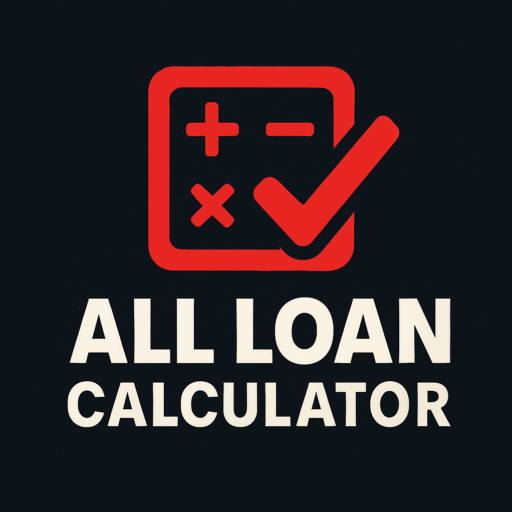Home Loans for Educators: A Complete Guide
Teachers and education professionals dedicate their lives to shaping the future, yet many struggle when it comes to owning a home. Fortunately, there are specialized programs and benefits designed to make homeownership more achievable. Home loans for educators offer tailored solutions with lower interest rates, reduced down paymentsand flexible requirements.
If you are an educator wondering how to buy your first home or upgrade to a new one this comprehensive guide will walk you through every detail.
Why Educators Need Specialized Home Loan Programs
Educators often face unique financial challenges. Salaries may be modest compared to other professionsand many teachers carry student loan debt. On top of that, rising property prices can make homeownership feel out of reach.
Specialized educator loan programs address these challenges by:
- Offering lower upfront costs.
- Providing grants or down payment assistance.
- Allowing more flexible credit requirements.
- Recognizing the stability of teaching careers despite modest pay.
What Are Home Loans for Educators?
Definition: Home loans for educators are mortgage programs created to support teachers, school staffand education professionals in purchasing or refinancing a home. These programs may come from government agencies, credit unionsor nonprofit organizations.
In short, they help level the playing field by reducing the financial barriers to homeownership.
Benefits of Home Loans for Educators
Here are some of the most common perks offered through educator-focused loan programs:
- Reduced Interest Rates – Teachers may qualify for lower mortgage rates, saving thousands over the loan term.
- Down Payment Assistance – Grants or forgivable loans can cover part of the down payment.
- Lower Closing Costs – Many programs waive or discount fees like origination and appraisal.
- Special Credit Considerations – Some lenders accept lower credit scores if other financial factors are strong.
- Exclusive Grants – Nonprofits and state programs may provide grants only for educators.
Types of Home Loans for Educators
1. Conventional Teacher Loan Programs
Certain banks and credit unions offer special conventional mortgages for teachers. These often include smaller down payment requirements and reduced private mortgage insurance (PMI).
2. FHA Loans for Educators
The Federal Housing Administration (FHA) insures loans with as little as 3.5% down payment. This is ideal for teachers with limited savings or lower credit scores.
3. VA Loans (For Veteran Educators)
If you are a veteran and an educator, the VA loan program offers zero down payment and no PMI. It’s one of the best mortgage benefits available.
4. USDA Loans
Educators in rural or suburban areas may qualify for USDA loanswhich provide zero down payment and lower mortgage insurance costs.
5. Good Neighbor Next Door Program
This program, run by HUD, provides teachers with 50% off the list price of homes in designated revitalization areas. While inventory is limited, the savings are significant.
6. State & Local Teacher Loan Programs
Many states run teacher housing assistance programs. These may offer down payment aid, favorable termsor even loan forgiveness if the teacher works in underserved communities.
Step-by-Step Guide to Getting a Home Loan as an Educator
- Check Your Eligibility – Confirm if you qualify for teacher-specific programs.
- Review Your Credit Score – Aim for 620+ for most loans, though FHA allows as low as 580.
- Calculate Affordability – Use our free mortgage calculator tool to estimate monthly payments.
- Explore Loan Options – Compare FHA, USDAand specialized educator loans.
- Apply for Assistance – Look into down payment grants or state-level aid.
- Get Pre-Approved – Strengthen your buying power before house hunting.
- Work with an Educator-Friendly Lender – Choose lenders who understand teacher schedules and pay structures.
- Close the Deal – Finalize paperwork, move inand start building equity.
Comparison: Educator Loan Programs vs. Standard Mortgages
| Feature | Standard Mortgage | Educator Loan Program |
| Down Payment | 5–20% | 0–3.5% |
| Interest Rates | Market Average | Often Below Average |
| Closing Costs | Full Amount | Discounts or Waived |
| Credit Requirements | Strict | Flexible |
| Special Grants | None | Educator-Exclusive Programs |
Common Misconceptions About Home Loans for Educators
Myth 1: Only Teachers Qualify
Fact: Many programs also cover school staff, librariansand administrators.
Myth 2: These Loans Are Hard to Get
Fact: Requirements are often easier than standard mortgages.
Myth 3: Programs Are Only for First-Time Buyers
Fact: Some assistance is first-time onlybut many teacher programs apply to repeat buyers too.
Myth 4: The Savings Aren’t Significant
Fact: Teacher loan benefits can save tens of thousands over time.
Tips for Educators Before Applying
- Pay Down Small Debts – This improves your debt-to-income ratio.
- Save for Extras – Even with aid, you will need funds for moving costs, inspectionsand furniture.
- Stay in Your District – Some grants require you to remain employed in your current district for several years.
- Check Multiple Programs – You might qualify for more than one loan or grant.
- Get Professional Advice – Mortgage brokers experienced with teacher loans can guide you to the best fit.
FAQs About Home Loans for Educators
1. Do I need to be a full-time teacher to qualify?
Not always. Many programs extend benefits to part-time teachers, paraprofessionalsand school staff.
2. Can educators with student loan debt still qualify?
Yes. Student loans are common among teachersand many programs account for that. Your debt-to-income ratio is the key factor.
3. What credit score is required?
FHA loans allow scores as low as 580. Other programs may require 620–640.
4. Is down payment assistance always a grant?
Not always. Some are forgivable loanswhile others are true grants that don’t need repayment.
5. Can I combine educator programs with FHA or VA loans?
Yes. Many teachers stack assistance programs on top of FHA or VA financing.
6. Are educator programs only for first homes?
No. While some are for first-time buyers, others support refinancing or moving to a new home.
7. Do I have to stay in the same school district?
Some grants require it, especially in underserved areas. Always read the fine print.
8. What if I stop teaching after buying a home?
If you received grant assistance tied to your teaching position, you may have to repay some benefits.
9. How do educator loans compare to standard mortgages?
They’re typically cheaper upfront with long-term savings on interest and fees.
10. How can I estimate my monthly payment?
You can easily calculate your payment using our free loan calculator tool, designed for educators and homebuyers.
Conclusion
Homeownership doesn’t have to be out of reach for teachers and education professionals. With home loans for educators, you gain access to lower interest rates, reduced down paymentsand exclusive financial support. Whether you are a first-time buyer or planning to move, these programs are designed to recognize the vital role you play in society.





